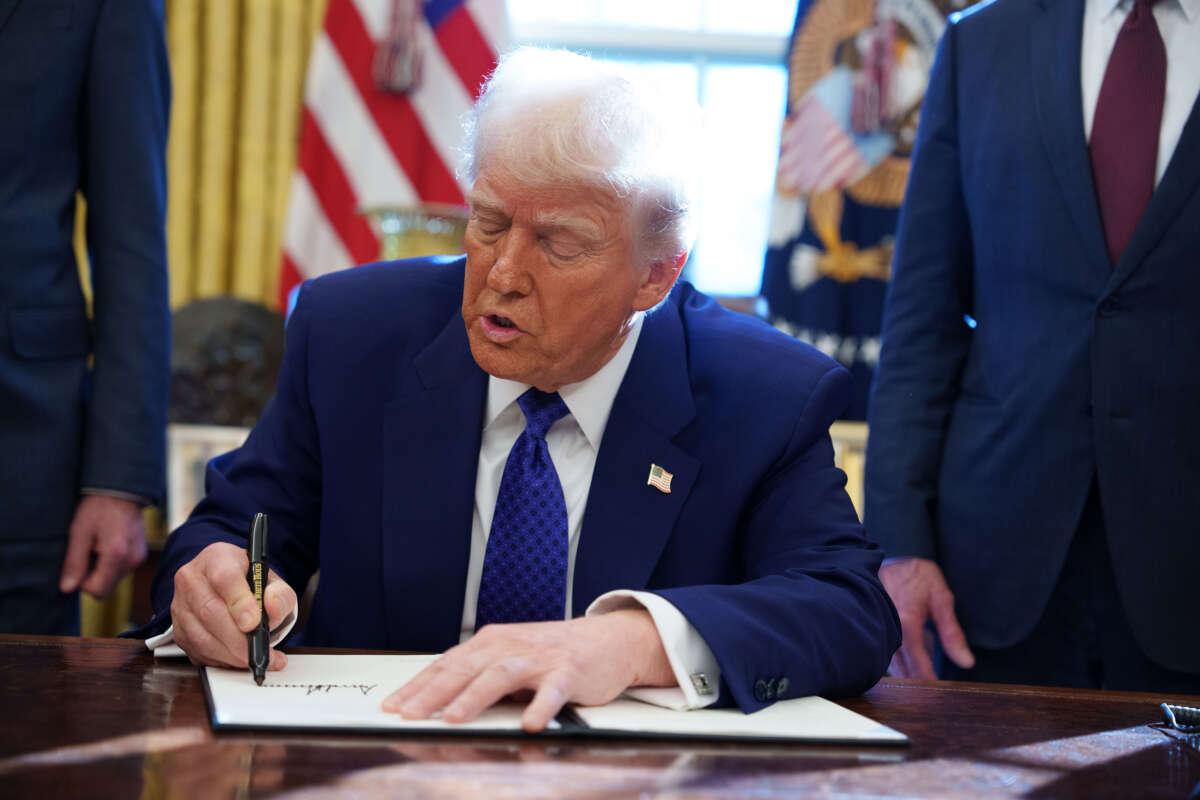Did you know that Truthout is a nonprofit and independently funded by readers like you? If you value what we do, please support our work with a donation.
On Wednesday, a panel of judges on the United States Ninth Circuit Court of Appeals refused a request from the Department of Justice (DOJ) to block a lower court’s stay on an executive order issued by President Donald Trump, which seeks to redefine birthright citizenship rights.
Trump’s order, issued on the second day of his second term in office, asserts that the 14th Amendment to the U.S. Constitution “has never been interpreted to extend citizenship universally to everyone born within the United States.” That claim, however, contradicts over a century of Supreme Court precedent, and a plain reading of the first clause of the amendment goes against the president’s reasoning.
All persons born or naturalized in the United States, and subject to the jurisdiction thereof, are citizens of the United States and of the state wherein they reside.
Earlier this month, four states’ attorneys general sued the Trump administration over the executive order. U.S. District Judge John C. Coughenour issued an injunction on enforcing the order, penning a scathing response to the White House’s brazen attempt to redefine a constitutional amendment.
“The rule of law is, according to [Trump], something to navigate around or something ignored, whether that be for political or personal gain,” Coughenour wrote in his order. “In this courtroom and under my watch the rule of law is a bright beacon, which I intend to follow.”
The Trump administration appealed the judge’s order to the Ninth Circuit Court, arguing that it was an “emergency” situation and that redefining the amendment was necessary to help carry out Trump’s immigration policies.
In a filing made in response to the appeal, the attorneys general said the case wasn’t about immigration at all, but rather the attempt by Trump to expand presidential powers to include reinterpreting the Constitution.
“This is not a case about ‘immigration.’ It is about citizenship rights that the Fourteenth Amendment and federal statute intentionally and explicitly place beyond the President’s authority to condition or deny,” their filing stated.
The circuit court refused to entertain Trump’s arguments, and ruled in favor of keeping the injunction in place.
Trump frequently (and without evidence) claims that such rulings are made by partisan judges for political reasons. However, he’ll have a difficult time making such an argument with this ruling, as two of the three judges involved in the ruling were nominated by Republican presidents — including Judge Danielle Jo Forrest, whom Trump himself picked to be on the circuit court.
In a concurring opinion, Forrest explained that the demand for an “emergency” stay of the lower court’s order was inappropriate, writing:
It is routine for both executive and legislative policies to be challenged in court, particularly where a new policy is a significant shift from prior understanding and practice. And just because a district court grants preliminary relief halting a policy advanced by one of the political branches does not in and of itself an emergency make. A controversy, yes. Even an important controversy, yes. An emergency, not necessarily.
Although the ruling keeps the lower court’s injunction in place for now, the case seems destined to be heard at the U.S. Supreme Court in the near future. Its outcome there is uncertain, as six of the justices on the bench are conservative appointees, including three that were picked by Trump.
Polling indicates that most Americans do not want to see a change to the current standard of birthright citizenship. A Reuters/Ipsos poll from last month, for instance, found that 59 percent support keeping birthright citizenship in place, while only 36 percent want to get rid of it.
Media that fights fascism
Truthout is funded almost entirely by readers — that’s why we can speak truth to power and cut against the mainstream narrative. But independent journalists at Truthout face mounting political repression under Trump.
We rely on your support to survive McCarthyist censorship. Please make a tax-deductible one-time or monthly donation.
